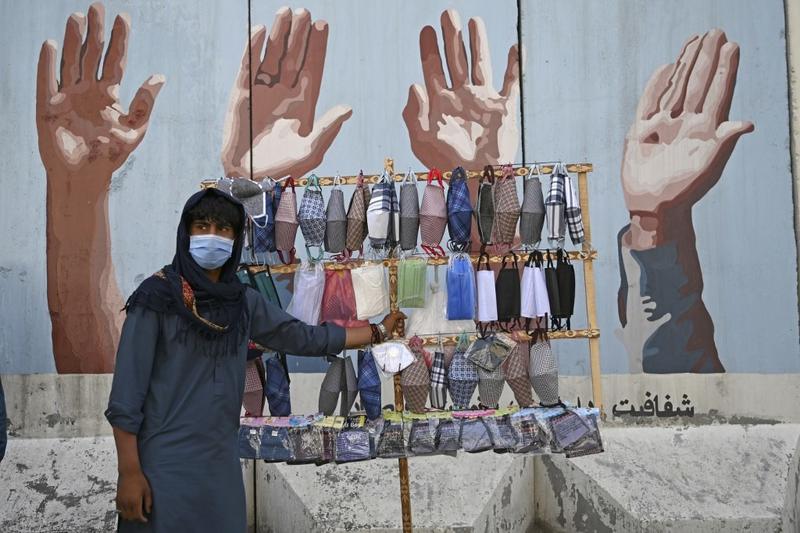 A street vendor selling face masks waits for customers in Kabul, Afghanistan, June 18, 2020. (WAKIL KOHSAR / AFP)
A street vendor selling face masks waits for customers in Kabul, Afghanistan, June 18, 2020. (WAKIL KOHSAR / AFP)
An Na knew she was needed as a doctor during a humanitarian mission in Afghanistan, and that's why the medical specialist stayed behind when the country closed its borders in March because of the coronavirus pandemic.
It took An a further four months until she could return to her hometown Beijing in July. In that time, she helped Afghans in their struggle against the virus.
The gynecologist-obstetrician was working in the war-scarred country under a mission led by the International Committee of the Red Cross, or ICRC.
There was very limited information about the virus at first, and everyone was very nervous and feared being infected.
An Na, Chinese doctor on humanitarian mission in Afghanistan
She was well aware that serving as a doctor in Afghanistan would be challenging as decades of conflict have devastated the medical system in the Central Asian country.
The situation became even harder for An and her co-workers when Afghanistan recorded its first cluster of coronavirus cases in late February. The virus soon spread rapidly across communities.
"There was very limited information about the virus at first, and everyone was very nervous and feared being infected," she said. "But no one in the hospital ran away. It was our duty to stay at the hospital and continue to work."
Facing the twin burdens of violence and COVID-19, she quickly adapted to the "new normal".
She and her colleagues had to do their best to maintain the normal operations of medical facilities so that patients could get as much medical assistance as possible at the Mirwais Regional Hospital, where she worked.
Built in 1974 as a gift from China to the Afghan people, the hospital in the city of Kandahar is also locally known as "the Chinese hospital".
ALSO READ: Red Cross offers Afghan children a lifeline
It is the only regional hospital in southern Afghanistan, where it serves a catchment of about 6 million people. Many of the patients, especially in the surgical ward, come from areas where fighting between the Taliban and government forces continues.
"That's a huge burden," said An, who was one of only six doctors in the hospital's department of gynecology and obstetrics.
In one of An's main contributions during her time there, she helped the hospital set up a series of protocols to minimize the impact of COVID-19 and monitor the health of over 300 healthcare workers in a bid to curb the spread of the coronavirus.
Main contributions
She was responsible for COVID-19 prevention and reconstruction of the representative offices. An organized for temperature checks to be put in place at building entrances, and reinforced the message for people to wash their hands. She also had coronavirus-awareness posters put up.
"At first, the local residents didn't understand what was going on. They thought it was a just serious flu with a high mortality rate," she said. "Fewer pregnant women came for antenatal care because they were afraid of getting infected."
What worried An most was the lack of medical supplies, especially when Afghanistan locked down its borders to try to shut out imported cases of the virus.
READ MORE: Envoy: China supports inclusive peace process in Afghanistan
During the early stages of the pandemic, An said Afghanistan experienced soaring prices of needed supplies, along with shortages. Aid flights later eased this problem.
In mid-June, An went to Kabul to support a hospital in the capital in its response to the virus, while waiting for a seat on a flight to become available. Afghanistan reopened its borders in June, enabling her to finally return home in early July.


